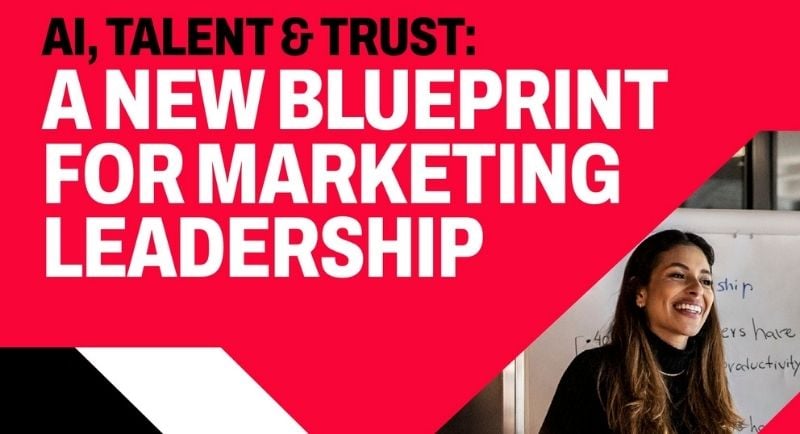The Association for Data-Driven Marketing and Advertising (ADMA) has released AI, Talent & Trust: A New Blueprint for Marketing Leadership, a new report outlining how marketers can lead effectively in an AI-powered environment.
The report highlights both the rapid uptake of AI tools and the capability gap within the industry. ADMA’s survey of more than 1,000 Australian marketers found 75% now use AI weekly, but only 29% have completed formal training.
“The future isn’t coming – it’s already here. AI is no longer a curiosity on the side; it’s already in our workflows, campaigns and customer conversations,” Andrea Martens, CEO of ADMA, said.
“But while AI can generate at scale, it cannot imagine, empathise or judge. That is why this report goes beyond technology – it is about people, creativity and trust. By providing clear frameworks and ethical guardrails, we want to ensure marketers can lead with confidence and unlock the full potential of an AI-powered future.”
Authored by AI experts Lisa Talia Moretti and Daniel Bluzer-Fry, the report includes insights from industry leaders such as futurist Tom Goodwin, Deloitte’s David Phillips, Archie CEO Steve Brennen, and ADMA regulatory advisor Peter Leonard.
The blueprint is part of ADMA’s National Workforce Intelligence Partnership with Reejig, mapping in real time how AI is reshaping marketing roles and skills. It sits alongside ADMA’s Capability Compass, workforce intelligence data, and regulatory initiatives aimed at embedding ethics, transparency and accountability into AI use.
Key takeaways from the report
• AI skills gap: While 75% of marketers use AI weekly, only 29% have formal training, revealing a clear skills imbalance. This gap exposes weaknesses in marketing technology, data management, and automation that could limit marketers’ ability to fully harness AI’s potential. ADMA’s Capability Compass shows foundational skills like consumer behaviour and brand positioning remain strong, but without closing these technical gaps, teams risk falling behind in an AI-driven landscape.
• Augmentation, not automation: Marketers are using AI to support, not replace, their work: from content creation and idea generation to refining brand tone. More than 70% of respondents are optimistic about AI’s long-term impact on effectiveness, but the oversaturation of AI-generated content, loss of originality and data privacy concerns remain key risks.
• X-shaped people and multidisciplinary teams: The report highlights the need for “X-shaped” professionals who combine breadth across creativity, strategy and data with depth in specialist expertise. These individuals are essential for guiding AI tools effectively and ensuring multidisciplinary teams work seamlessly across silos.
• The importance of experimentation: The organisations that thrive will be those embedding experimentation and continuous learning into their culture. The report outlines practical steps such as creating safe “sandboxes” to test tools, building “AI champions” within teams and encouraging peer-to-peer learning to drive responsible adoption.
• Responsible AI as a brand imperative: Trust is the business model; and responsibility must be built in, not bolted on. Yet only 36% of Australians say they trust AI, highlighting the fragile foundation on which adoption currently sits. The report calls on marketers to lead the way, embedding Fairness, Accountability, Transparency and Ethics (FATE) into AI workflows to protect consumer confidence and position responsible AI as the basis for loyalty and long-term growth.
